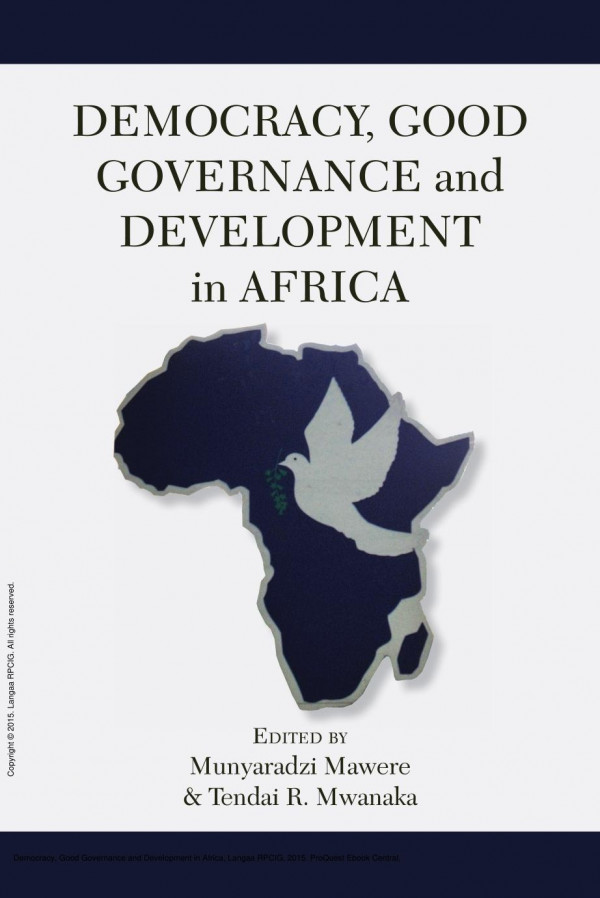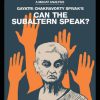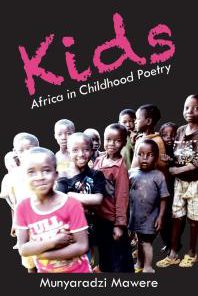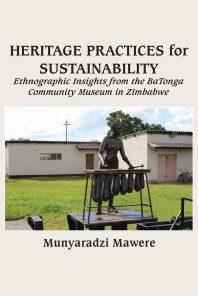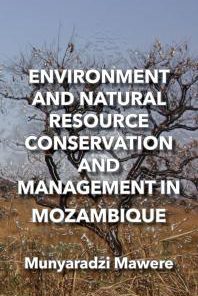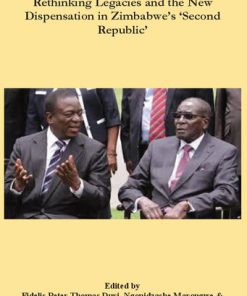Democracy Good Governance and Development in Africa 1st Edition by Munyaradzi Mawere 9789956763122 9956763128
$50.00 Original price was: $50.00.$25.00Current price is: $25.00.
Democracy Good Governance and Development in Africa 1st Edition Munyaradzi Mawere – Ebook Instant Download/Delivery ISBN(s): 9789956763122,9956763128
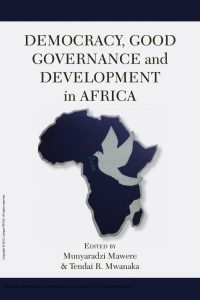
Product details:
- ISBN 10:9956763128
- ISBN 13:9789956763122
- Author: Munyaradzi Mawere
Questions surrounding democracy, governance, and development especially in view of Africa have provoked acrimonious debates in the past few years. It remains a perennial question why some decades after political independence in Africa the continent continues experiencing bad governance, lagging behind socio-economically, and its democracy questionable. We admit that a plethora of theories and reasons, including iniquitous and maledictious ones, have been conjured in an attempt to explain and answer the questions on why Africa seems to be lagging behind other continents in issues pertaining to good governance, democracy and socio-economic development. Yet, none of the theories and reasons proffered so far seems to have provided enduring solutions to Africa’s diverse complex problems and predicaments. This book dissects and critically examines the matrix of Africa’s multifaceted problems on governance, democracy and development in an attempt to proffer enduring solutions to the continent’s long-standing political and socio-economic quandaries and hitches. Contributions are by African scholars and researchers from different disciplinary orientations and countries. Grounded in empirical reality as well as the lived experiences of the contributors, the book is an invaluable asset for social scientists, development practitioners, politicians and civil society activists.
Table contents:
A Guide to the Chapters
Chapter One – Envisioning African Democracy in the Twenty-First Century: Mwana washe muranda kumwe a
Introduction
Democracy and mwana washe muranda kumwe: The paradoxes and inversions in coloniality
The local, the global and Mwana washe muranda kumwe: are visit of some epistemological and ontologic
References
Chapter Two – Towards a United States of Africa: Concepts, Issues, and Methodologies
Introduction
A United States of Africa: An ever-longed idea?
Enlivening the idea of a united Africa
Rising above ethnicity and cultural difference for unity
Conclusion
References
Chapter Three – African Democracy Vis-A-Vis Western Democracy: Afrikenticating, Follyfying, Expibask
Introduction
The folly in “African democracy”: Roles of expibasketism and intellectualism
The HISOFE Independence Messages from Pretoria/Bamako-Kigali
The real meaning of “Western democracy”: The colonizers’ club?
One-Percent Enslavement of Ninety-Nine Percent
The Maximizing and Walt-Marting of Human Automatons
The Obamacaring Exceptionalsm in America
On Lielisticalism (on/from Africa): The Forest Snake-Mosquito and Other Shitting Narratives
The No-Shitting Theory
The Poisonous-Snake Thesis
The Mosquito Narrative
Conclusion
References
Chapter Four – Mandela and Coloniality in South Africa
Introduction
Profiling Mandela
‘Saint’ Madiba
Sanitised Transformation, Wretched Lives, Shattered Hopes, and the Mandela Legacy
Theorising Coloniality
Problematising the South African Human rights discourse
Coloniality as structural violence
Coloniality in education
Unemployment and unequal employment opportunities
Inadequate Housing and racial inequalities
Conclusion
References
Chapter Five – The State and Knowledge of Democracy in West Africa: A Critical Analysis
Introduction
West Africa Democracy and Governance: Theoretical Implications
West Africa: Progress, Challenges and Prospects of Democracy
Case Studies: Democratic Consolidation, Stalemates and Reversals in West Africa
Media in West Africa
Conclusion
References
Chapter Six – Paradigm Clash, Imperial Methodological Epistemologies and Development in Africa: Obse
Introduction
Paradigm clashes: Research escapades in rural Zambia and Zimbabwe
Contemporary orientalism, imperialism and colonialism
Culture and paradigm
Hegemonic paradigm
Conclusion
References
Chapter Seven – Exploring Indigenous Religious Tenets for Democratic Sustainability in Contemporary
Introduction
Indigenous Religious Tenets: An Overview
Tenets of Indigenous Religion
Democracy: A Conceptual Clarification
Indigenous Religious Tenets and Democratic Sustainability in Nigeria: A Symbiosis
An Appraisal of Western Democratic Values in Nigeria
Conclusion
References
Chapter Eight – Global Political Agreement and the Government of National Unity in Zimbabwe: Legal a
Introduction
Background to the GPA and the GNU
GPA as a landmark moment
The GPA as a political compromise
The Political Reform Objective
Aspects of Political Reforms in the GPA
Balance of Power under the GPA
Structure of Government
Cabinet and Ministerial Appointments
Imbalance in Cabinet composition
Executive Authority
Public Appointments
Independent Commissions
Façade of reforms
Constitutional reforms
Lack of Accountability
Enforcement, Implementation and periodic review
Conclusion
References
Chapter Nine – Culture, Ethics and Politics for a Better and Sustainable Africa: The Mozambican Expe
Introduction
Culture, ethics and politics: A brief conceptual analysis
The tripartite relationship between culture, ethics and politics
Why the need for ethical politics?
Conclusion
References
Chapter Ten – Education for Sustainable Development in Africa: An Appraisal with Focus on Nigerian E
Introduction
Education and Sustainable Development
Africa and the Development Discourse
Pre-colonial Education in Africa
Nature of Education that Guarantees African Sustainable Development
Conclusion
References
Chapter Eleven – The Unsung Dimension of Great Zimbabwe National Monument: A critique
Introduction
Conceptualising Indigenous Knowledge
Heritage, resilience, and civilizations of societies
Suppression of IKSs and Indigenous Voices in the conservation of Great Zimbabwe Monument
Conclusion
References
Chapter Twelve – Youths and Ethno-Religious Conflicts in Sino-Nigerian Countries: A Comparative and
Introduction
Origin of Ethno-Religious Conflicts in Nigeria and China
A Comparative Approach to Sino-Nigeria Ethno-Religious Conflicts
Conclusion
References
Chapter Thirteen – Reviving African Indigenous Institutions for Democracy, Good Governance and Devel
Introduction
Understanding democracy
Democracy, governance and civilisation of world societies
Traditional leadership and family institution: Promises for good governance and development
Conclusion
References
Chapter Fourteen – Architectures, Technologies and Indigenous Knowledge in Africa: The Impetus and P
Introduction
The BaTonga people of north-western Zimbabwe
Architecture
Technologies
Family planning
Snake bites
Challenges to the sustainability of IK in Zimbabwe
People also search:
democracy good governance and development in africa
examples of good governance in africa
what is the relationship between democracy and good governance
democracy and development in africa
democratic government in africa
You may also like…
Uncategorized
Kids Africa in Childhood Poetry 1st Edition by Munyaradzi Mawere ISBN 9789956791927 995679192X
Engineering - Social & Cultural Aspects of Technology
Uncategorized
Uncategorized
Politics & Philosophy - Government & Politics

